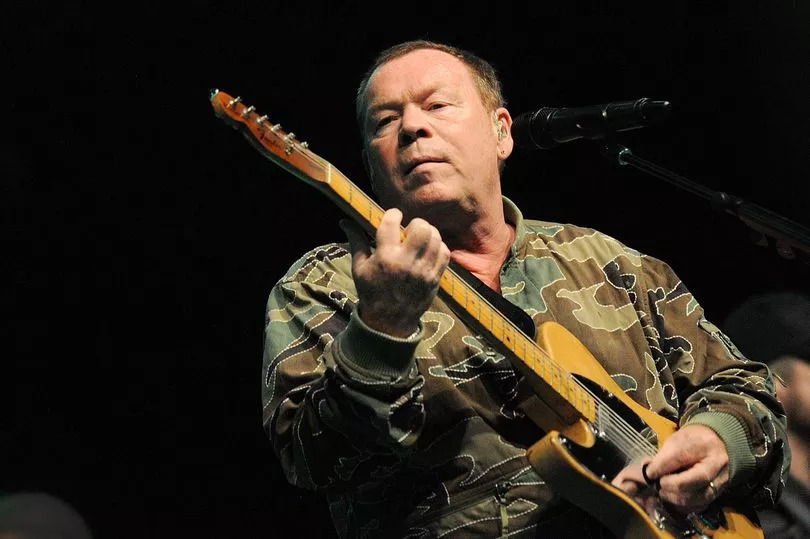
Donald Trump’s shocking and mendacious attack this week on the Ukrainian president, Volodymyr Zelenskyy, as a “dictator” while cozying up to the Russian president and indicating that traditional US security support for Europe is waning may have alarmed US allies abroad but has prompted a more starkly divided response among Americans at home.
Reflecting the country’s deeply partisan attitude to the new president and his “America first” foreign policy doctrine, polling suggests that Republicans are much more likely to oppose additional help for war-torn Ukraine. A Pew Research Center survey earlier this month found that 47% of Republicans but just 14% of Democrats thought the US was providing too much support to Ukraine – views that have changed dramatically since the war began three years ago, when just 7% of all American adults (9% of Republicans and 5% of Democrats) said the US was providing too much support to Ukraine.
Many voters on the left say Trump’s comments make them fearful that the president’s stance toward Ukraine could further embolden the Russian leader, Vladimir Putin, and jeopardize national security.
“It is an outrageous denial of the truth and shows his allegiance to Russia and to Putin especially,” said Carla Bayles, a voter from Washington state who supported Kamala Harris in last year’s presidential election. “We are alienating our allies and getting us closer to a world war.”
ADVERTISEMENT
Related: What are we to make of Trump’s Ukraine policy? | Matt Duss
Other Harris voters feel the same, though many say they aren’t surprised given Trump during the campaign expressed minimal support for Ukraine, dubiously claiming that the war would not have begun if he had been president in 2022.But Trump attacking a US ally and implicitly blaming Ukraine for Russia’s invasion, suggesting that Kyiv could have “made a deal” to avert war, have them watching in horror.
“I’m disgusted by Trump’s foreign policy,” said Dawna Williams-Landis, a Harris voter from North Carolina. “He has discarded 200 years of intentional diplomacy that would have built peace by negotiation and freedom.”
Some Americans went so far as to compare Trump to historical world leaders who shrank in the face of fascism, such as Neville Chamberlain, the former UK prime minister who adopted an ultimately disastrous approach of appeasement toward Adolf Hitler.
“I can’t figure out whether Trump is Neville Chamberlain at Munich, or Vidkun Quisling in Norway,” said David Cohen, a Harris voter from Connecticut. “Either way, his approach is bad for Europe, the US and democracies.”
ADVERTISEMENT
Among Republicans, Trump himself maintains nearly unanimous support with a 93% approval rating, but his denunciation of Zelenskyy could still leave him vulnerable to criticism, even among his most loyal supporters. The Gallup poll showed that 80% of Republicans approve of Trump’s approach to the situation in Ukraine, marking one of his weakest policy areas with fellow members of his party.
Judy Kim, a registered Republican voter in California who nevertheless supported Harris in the election, accused Trump of attempting to create a dictatorship and aligning himself with authoritarian leaders like Putin.
“Isolationism has never worked,” Kim said. “The American people support Nato and Ukraine. We should encourage ties with our democratic allies in Europe and the world, not with dictators like Putin.”
Another Trump voter from California who chose to remain anonymous said she did not support the president’s embrace of Putin and feared he would drive the US to the brink of calamity.
“It has put the US and the world in a very dangerous situation,” the voter said. “I did not vote for his stance towards Europe.”
ADVERTISEMENT
But some of Trump’s supporters celebrated his approach to Ukraine and foreign policy more broadly, insisting US allies had previously relied too much on the country’s financial assistance.
Peter Jorgenson, a Trump voter from Pennsylvania, described the president’s handling of foreign policy as a “win-win” for the US, adding, “I think it is a clear message that the handouts, finance-wise, are over, and everyone should be alert to their own security.”
It remains unclear whether Trump’s attacks on Ukraine will have a negative effect on his standing with the US electorate. A Gallup poll conducted earlier this month, before Trump unleashed his attack against Zelenskyy, found that Trump’s approval rating stood at 45%, virtually unchanged from last month.
Zelenskyy himself remains broadly popular with Americans, with 47% expressing a positive opinion and 28% a negative one, according to a YouGov/Economist poll conducted this week – though again, Democrats skewed much more favorable than Republicans, who were evenly split.
In at least one case Trump’s approach to Putin has already cost him a vote: a man from Florida who spoke on condition of anonymity and said he supported Trump in 2016 and 2020 – but not 2024, precisely because he feared the president was alienating allies at a time when the US needs them most.
“Trump has some sort of infatuation with Putin,” the voter said. “He doesn’t seem to understand that Putin will lie, cheat and do anything to control Russia and win internationally at any cost. Putin wants to rule all of Europe and wouldn’t stop there.”
EMEA Tribune is not involved in this news article, it is taken from our partners and or from the News Agencies. Copyright and Credit go to the News Agencies, email news@emeatribune.com Follow our WhatsApp verified Channel





